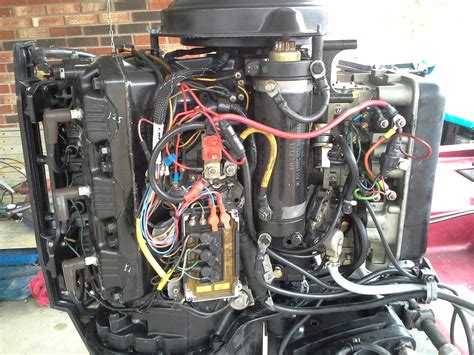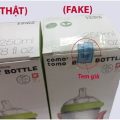Is My Mercury Boat Engine Real? A Comprehensive Guide to Authenticity
Mercury Marine, a prominent name in the boating industry, is renowned for its high-performance and reliable outboard motors. However, with the popularity of these engines, counterfeiting has unfortunately become a concern. In this comprehensive guide, we will delve into the intricacies of identifying genuine Mercury boat engines, helping you discern the real from the fake.
Owning a Mercury outboard engine is a dream for many boat enthusiasts. The brand symbolizes quality, power, and durability. However, the rising prevalence of counterfeit engines has created a need for discerning buyers. This guide is your ultimate resource to help you distinguish between genuine Mercury engines and potentially fraudulent ones. We will explore key features, telltale signs, and essential tips to ensure you make informed decisions when buying or inspecting a Mercury engine.
This article will cover topics such as:
- How to Identify a Real Mercury Boat Engine
- Common Features of Counterfeit Mercury Engines
- Signs of a Fake Mercury Engine
- The Importance of Buying From Reputable Dealers
- Steps to Take if You Suspect a Counterfeit Engine
- Tips for Preventing Counterfeit Purchases
Let’s dive in and equip you with the knowledge to make wise choices when it comes to your Mercury outboard engine.
What Are the Signs of a Real Mercury Engine?
Authenticating a Mercury boat engine requires a keen eye for detail. Here are some crucial signs that point towards a genuine product:
- Serial Number: Genuine Mercury engines have a unique serial number permanently etched on the engine’s block, cowling, or transom bracket. This number is crucial for verifying the engine’s origin and history.
- Mercury Marine Logo: The Mercury Marine logo on the engine’s cowling and other parts should be clear, crisp, and consistent with the official brand logo. Look out for inconsistencies in the logo’s design or printing quality.
- Engine Components: Examine the engine components like the carburetor, exhaust manifold, and propeller. These parts should be of high quality, with smooth finishes and accurate dimensions. Counterfeits may have rough edges, inconsistent paint, or mismatched parts.
- Build Quality: Authentic Mercury engines are known for their robust build quality. The engine block, cowling, and other parts should feel solid and well-assembled. Any loose connections, flimsy materials, or sloppy workmanship could indicate a counterfeit.
- Documentation: When purchasing a Mercury engine, ensure you receive all the necessary documentation, including the owner’s manual, warranty card, and service history.
By scrutinizing these details, you can significantly increase your chances of identifying a genuine Mercury engine.
What Are Some Common Features of Fake Mercury Engines?
Counterfeiters often try to mimic the appearance of genuine Mercury engines, but they may make some critical errors or compromises. Here are some common features of fake Mercury engines:
- Poorly Etched Serial Numbers: Counterfeit engines often have serial numbers that appear blurred, uneven, or poorly etched. The numbers may be inconsistent with the official Mercury numbering system.
- Incorrect or Faded Logos: The Mercury Marine logo on fake engines may be misspelled, have an incorrect font, or appear faded or poorly printed. Counterfeits may also have inconsistent logos on different parts of the engine.
- Low-Quality Materials: Counterfeit engines may utilize inferior materials, which can result in poor engine performance, frequent breakdowns, and premature wear.
- Missing or Incorrect Labels: The engine’s labels, such as the model number, horsepower, and safety information, may be missing or incorrect on counterfeit engines.
- Lack of Proper Documentation: Counterfeit engines often come without proper documentation, such as the owner’s manual, warranty card, or service records.
These features can be red flags that indicate you might be dealing with a counterfeit engine.
How Can I Verify If My Mercury Engine is Real?
To verify the authenticity of your Mercury engine, you can take several steps:
- Contact Mercury Marine: Reach out to Mercury Marine directly through their website or customer service hotline. Provide them with the engine’s serial number. They can verify if the engine is registered and legitimate.
- Visit a Mercury Dealer: Take your engine to an authorized Mercury dealer for inspection. They are trained to recognize authentic Mercury engines and can identify any discrepancies.
- Check Online Resources: Online forums and resources dedicated to boating and marine engines often have sections where owners discuss counterfeit issues and share identification tips.
- Use a Serial Number Database: There are online databases dedicated to tracking boat engine serial numbers. Search for your engine’s serial number in these databases to see if it matches any known counterfeit listings.
By taking these precautions, you can significantly reduce the risk of unknowingly purchasing or owning a counterfeit Mercury engine.
What Should I Do If I Think I Have a Counterfeit Mercury Engine?
If you suspect that you have a counterfeit Mercury engine, it’s crucial to take immediate action:
- Stop Using the Engine: Do not operate the engine if you suspect it’s counterfeit. This will prevent potential safety hazards and costly engine damage.
- Contact Authorities: Report your suspicions to the local authorities, such as the police or consumer protection agencies. Provide them with any evidence you have, including photos, documentation, and purchase details.
- Contact Mercury Marine: Inform Mercury Marine about the suspected counterfeit engine. Provide them with as much information as possible, including the engine’s serial number, purchase details, and any relevant documents.
- Document Everything: Keep detailed records of your interactions with authorities, Mercury Marine, and the seller of the engine. This documentation can be valuable if you need to pursue legal action.
By taking swift action, you can help protect yourself and others from counterfeit products and contribute to fighting fraud in the boating industry.
What Are the Risks of Using a Counterfeit Mercury Engine?
Using a counterfeit Mercury engine can have serious consequences:
- Safety Hazards: Counterfeit engines may be manufactured with inferior materials and substandard assembly practices. This can lead to engine failures, malfunctions, and potential safety risks while boating.
- Reduced Performance: Counterfeit engines often lack the power, efficiency, and durability of genuine Mercury engines. This can lead to decreased performance and frustration during boating.
- Costly Repairs: Counterfeit engines are more prone to breakdowns and require frequent repairs. The cost of these repairs can significantly outweigh any initial savings from buying a counterfeit.
- Limited Warranty: Counterfeit engines are typically not covered by Mercury Marine’s warranty. This means you will be responsible for all repair and replacement costs.
- Legal Issues: Purchasing or using counterfeit engines may be illegal in certain regions. You could face legal penalties, fines, or even imprisonment.
The potential risks associated with counterfeit engines far outweigh any perceived financial advantages.
How Can I Protect Myself from Buying a Counterfeit Mercury Engine?
To protect yourself from counterfeit Mercury engines, follow these essential tips:
- Buy from Reputable Dealers: Purchase your Mercury engine from authorized Mercury dealers or reputable marine retailers.
- Thoroughly Inspect the Engine: Before purchasing, carefully examine the engine for any signs of counterfeiting.
- Request Documentation: Ask for all necessary documentation, including the owner’s manual, warranty card, and service history.
- Compare Prices: Be wary of abnormally low prices, as they could indicate a counterfeit engine.
- Check Reviews: Read reviews from other buyers to get a sense of the seller’s reputation and any potential issues with counterfeit products.
By taking these precautions, you can significantly reduce the risk of encountering counterfeit Mercury engines.
Summary of Key Points
This article has explored the key factors to consider when trying to identify a real Mercury boat engine. Here is a table summarizing some of the key points we’ve covered:
FAQ
What is the Mercury Verification System?
Mercury Marine offers a verification system to help customers identify genuine engines. The system utilizes unique QR codes placed on the engine’s cowling or other parts. When scanned with a smartphone or tablet, the QR code links to a website where you can verify the engine’s authenticity.
How Can I Tell if a Mercury Engine is Covered by a Warranty?
To determine if a Mercury engine is covered by a warranty, you can check the warranty card or contact Mercury Marine directly. The warranty period and coverage details may vary depending on the engine model and purchase date.
Are There Any Other Ways to Identify a Counterfeit Engine?
Besides the methods discussed earlier, you can also rely on your gut feeling and common sense. If something about the engine or the seller seems suspicious, it’s best to err on the side of caution and investigate further.
What if I Discover a Counterfeit Engine After Purchase?
If you discover that you have purchased a counterfeit engine, immediately contact the seller, Mercury Marine, and the relevant authorities.
Where Can I Find More Information About Mercury Engines?
For additional information about Mercury engines, including specifications, maintenance guides, and warranty details, visit the official Mercury Marine website.
Are There Any Resources for Reporting Counterfeit Products?
Yes, several organizations and agencies are dedicated to fighting counterfeit products. Contact the National Intellectual Property Rights Coordination Center (IPR Center) or the United States Patent and Trademark Office (USPTO) for reporting counterfeit goods.
How Can I Support the Fight Against Counterfeiting?
To support the fight against counterfeiting, you can educate yourself, be vigilant when making purchases, report suspicious activity to the authorities, and support legitimate businesses.



